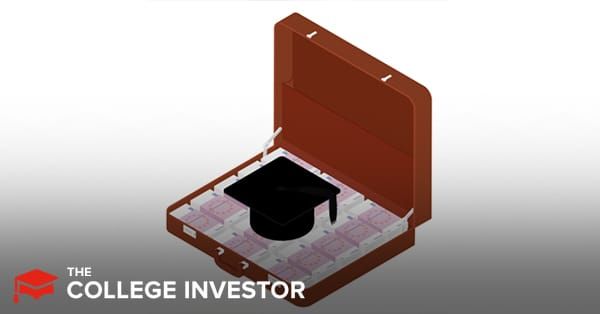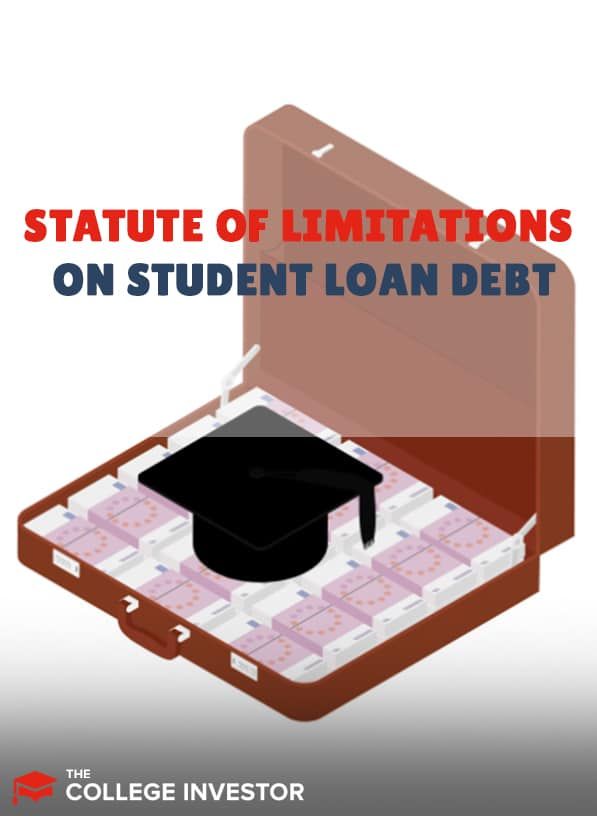
If you’ve got student loans in default, ignoring the debt is rarely the right answer. Federal student loan default can lead to garnished wages, tax refunds, and even garnished social security checks. And they don’t go away when you ignore them.
However, private student loans may be subject to a statute of limitations on debt collection. After several years in default, the debts could become “uncollectible.” In other words, collectors can no longer sue or use legal means to collect the debt.
If you have old student loans in default, you need to understand the rules governing the statute of limitations on student loan debt in your state and how they apply to you. Below, we break down how the rules work and list the student loan statute of limitations timelines for each state.
What Is A Statute Of Limitations On Debt?
The statute of limitations on debt refers to the amount of time that a creditor can sue you if you have been in default. Once the statute of limitations has been reached, the creditor has no way to engage the legal system to get you to repay the debt.
Of course, you still owe the debt even after the statute of limitations has been reached. But creditors lose all their “teeth” once the statute of limitations has been reached.
Once the debt is “time-barred” (meaning the statute of limitations is passed), the creditor cannot sue you or use the legal system to garnish payment from you. Any further requests for payment are all bark and no bite.
Statute Of Limitations On Student Loan Debt
So is there a statute of limitations on your student debt? Well it will depend heavily on the kind of student loans that you have. Below you'll see that the answer is very different for federal borrowers than for those with private student debt.
Federal Student Loans
Unfortunately, federal student loans don’t have any statute of limitations. Your student loan servicer can sue you (and garnish payments from you) if you fail to make payments on your debt. Federal student loan debt never expires.
Borrowers who have student loans in default could be subject to having wages garnished, or tax refunds withheld. Borrowers may even have their Social Security payments garnished (which can be a huge problem for parents or grandparents who signed a Parent PLUS loan).
As already noted, ignoring federal loans won't make them go away. So you'll need to have a plan to revive your federal student loans in default so you can get rid of them once and for all.
Private Student Loans
Unlike federal loans, private student loans
do have a statute of limitations. The time for a debt to become time-barred varies from state to state. Some states have limitations as short as three years (Maryland, DC, Louisiana and others), while others keep debt “active” for up to 20 years (looking at you Massachusetts...). The most common timeframe is 6 years.
If you have private student loans in default, and you think they may be time-barred, consult a bankruptcy or consumer advocacy attorney in your state. A lawyer can help you figure out whether your private student loan debt is past the statute of limitations. They can also give you legal advice if you’re facing a suit for time-barred debt.
Furthermore, be careful in "resetting the clock". If you make a payment or other action, you could be resetting the clock on your debt. Again, speak to a lawyer in your state.
For a full list of the laws, check out this guide: Student Loan Statute of Limitations Laws.
Private Student Loan Statute Of Limitations Timelines
Here's a state-by-state breakdown of private student loan statute of limitations timelines. Note that other types of debt may be subject to different limitations.
State | Statute of Limitations |
|---|---|
Alabama | 6 years |
Alaska | 3 years |
Arizona | 6 years |
Arkansas | 5 years |
California | 4 years |
Colorado | 6 years |
Connecticut | 6 years |
Deleware | 6 years |
District of Columbia | 3 years |
Florida | 5 years |
Georgia | 6 years |
Hawaii | 6 years |
Idaho | 5 years |
Illinois | 10 years |
Indiana | 6 years |
Iowa | 10 years |
Kansas | 5 years |
Kentucky | 15 years |
Louisiana | 3 years |
Maine | 6 years |
Maryland | 3 years |
Massachusetts | 20 years |
Michigan | 6 years |
Minnesota | 6 years |
Mississippi | 3 years |
Missouri | 10 years |
Montana | 8 years |
Nebraska | 5 years |
Nevada | 6 years |
New Hampshire | 6 years |
New Jersey | 6 years |
New Mexico | 6 years |
New York | 6 years |
North Carolina | 3 years |
North Dakota | 6 years |
Ohio | 8 years |
Oklahoma | 5 years |
Oregon | 6 years |
Pennsylvania | 4 years |
Rhode Island | 10 years |
South Carolina | 3 years |
South Dakota | 6 years |
Tennessee | 6 years |
Texas | 4 years |
Utah | 6 years |
Vermont | 6 years |
Virginia | 5 years |
Washington | 6 years |
West Virginia | 10 years |
Wisconsin | 6 years |
Wyoming | 10 years |
Beware Of Zombie Debt!
Even if the statute of limitations on student loan debt has passed, creditors may still legally contact you. Whatever you do, don’t agree to make payments on debt that has already passed your state's student loan statute of limitations timeline.
Time-barred student loans can become "zombie debt" (i.e. dead debt brought back to like) if you make a payment on the loan. Suddenly, the collector will have legal means to collect the debt again.
Instead of making a payment, request a debt verification letter. This letter should include the name of the original creditor, the original amount owed and the name of the current collector. This information can help you figure out whether the debt is as old as you think it is.
If you’re having trouble understanding a collection agent, consider enlisting the help of a lawyer. You can search for a lawyer using the American Bar Association's Find Legal Aid tool online or through the National Association of Consumer Advocates (NACA), which includes lawyers that specialize in consumer protection.
What To Do If You Have Student Loans In Default
If you’ve got debts in default, you'll need to figure out a plan to get the loans out of default or out of your life. And this is especially true if there is no statute of Limitations on student loan debts that you owe. Here are a few recommended actions to take.
Answer All Lawsuits Against You
Whether you have federal or private debt, it's critical to answer any lawsuit that comes against you. Even if you think the statute of limitations on the debt is long gone, you need to answer the suit.
A judge may not realize that the debt is time-barred and may rule in favor of your creditor. When a judge rules in favor of the creditor, the debt becomes collectible. You can either represent yourself in court, or enlist the help of a lawyer who can advocate on your behalf.
If you have reason to believe that some of your private loans have passed the statute of limitations on student loan debt, inform the collector that you will not make payments on it. Then take the following steps:
- Do not make partial payments on time-barred debt. Do not agree to pay the debt in portions. If it is important for you to pay the debt for moral reasons, wait until you can afford to pay the debt in full. Enlist the help of a lawyer to help you craft a settlement plan so the creditor can’t come back after you later for unpaid interest and fees.
- Send creditors a cease and desist letter. Once you have informed the creditor that the debt is time-barred, send them a cease and desist letter via certified mail. This letter should inform them to not contact you again except to confirm receipt of the letter or to inform of any legal action being taken.
Related: The 34 Student Loan Collectors And How To Contact Them
Consider Settling Private Debt In Default
If your private student loans are in default, and aren’t time-barred, you may want to try a settlement option. In a settlement, the borrower agrees to pay a certain amount of money (usually less than the total amount owed) if the creditor agrees to waive the right to sue for further money.
Since settlements are legal agreements, it's usually best to hire a bankruptcy attorney or a settlement lawyer to walk you through this process.
Get Federal Student Loans Out Of Default
Remember, federal debt isn't subject to your state's student loan statute of limitations timeline. Plus, in order to qualify for most student loan forgiveness programs, you need to be making payments on your loans.
For these reasons, you'll want to take steps as soon as possible to get your federal loans out of default. Thankfully, all Direct federal student loan borrowers are eligible to join Income-Driven Repayment (IDR) plans. Depending on your income level, you may qualify for lower payments to help you get out of default and back on track.
It takes just nine reasonable payments (for those living in poverty, the payment may be as small as $5 per month) to get a federal loan out of default. Learn the 5 easy steps it takes to get federal student loans out of default.

Robert Farrington is America’s Millennial Money Expert® and America’s Student Loan Debt Expert™, and the founder of The College Investor, a personal finance site dedicated to helping millennials escape student loan debt to start investing and building wealth for the future. You can learn more about him on the About Page or on his personal site RobertFarrington.com.
He regularly writes about investing, student loan debt, and general personal finance topics geared toward anyone wanting to earn more, get out of debt, and start building wealth for the future.
He has been quoted in major publications, including the New York Times, Wall Street Journal, Washington Post, ABC, NBC, Today, and more. He is also a regular contributor to Forbes.
Editor: Clint Proctor Reviewed by: Chris Muller
